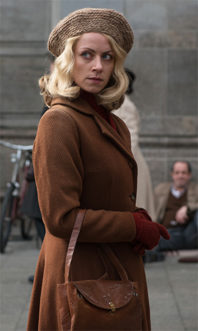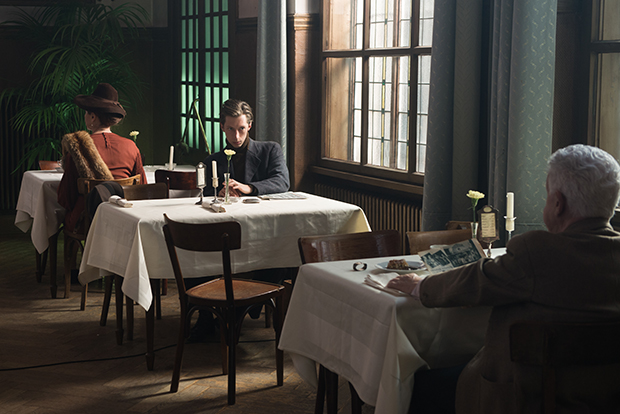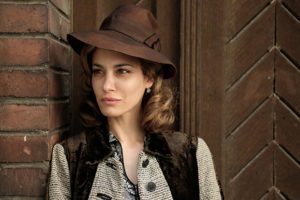
During World War II, German Jews had two choices. One is to follow their government’s orders, which deported them to the East and face uncertain fates. The other is to hide within Germany which, at first, doesn’t make sense. It seems better to run away from one’s oppressors. But there are reasons for staying. The first is to show the love for a country despite facing harsh yet, hopefully, temporary persecution. Showing their indispensability is also a way for them to stay in Germany.
As a true manifestation of the docudrama hybrid, The Invisibles is a movie that works half the time. What’s on the forefront here, nonetheless is an earnestness. That quality shows in depicting the indignities that its four teenage protagonists face for being Jewish. Like most Jewish ‘subjects’ in 1941 Germany, Ruth Arndt (Ruby O. Fee) lost her house. Another Jewish boy, Eugen Friede (Aaron Altaras), needs a permit to ride any public transport. As we know now, the German government took more privileges away from them.
Being subjects of an actual witch hunt has its psychological ramifications. It shows those effects through the story line of one of its other protagonists, Hanni Levy’s (Alice Dwyer). She has to dye her hair blonde, and it shows the act of seeing her new self changes her. Through the narration of the real Hanni Levy, she also explains how she has to behave while walking in daylight. She has to learn not to hide, even if that is exactly what she is doing.

There’s an element that’s more conspicuous in The Invisibles and that is how it shows the Good German without irony. Throughout the the film we see the protagonists under the employ of Germans. These Germans know they’re hiring Jewish people and have mostly positive motives in doing so. Cioma Schonhaus (Max Mauff) is a young art student who becomes both a factory worker and a forger. And his boss gives him chance after chance for making mistakes. Although in his defense, those mistakes aren’t his own.
These good German also highlight how all four experience danger by staying in Berlin. The Gestapo even had Jewish members hunting their own. But it’s worse for the boys. Cioma makes money by selling his food stamps. Eugen eventually lives with someone spreading anti-Nazi propaganda and almost faces deportation for doing so. Some scenes expose the turns of luck that these characters face in hiding. But other scenes don’t explain those plot lines well.
The Invisibles should do what period pieces normally do and take us back to whatever time it’s depicting. The actors narrate the events on screen. But it’s strange to hear the switch from them to their older, real life counterparts doing the narration. It also shows the most current interviews of the real people who became invisible. This supposedly drives the point that these people were real. These goals are noble, sure, but this format is distracting, showing writer-director Claus Rafle’s indecisiveness in telling compelling stories.
The real counterparts of the four protagonists show up for straightforward interviews. All of them have something different to offer the movie. They make the film interesting by speaking candidly. They also give a lot of detail to things they have to do to hide from the Gestapo. I would have not minded to see a period film and a separate talking head documentary with these vibrant individuals. Instead, what we get is a mash-up that cramps both styles of storytelling.
Another thing it does is show black and white archive footage of Berlin during the 1940s. Those reels show the city’s wide avenues that, supposedly, no longer had Jewish people walking freely. It then switches to the restaurants that someone like Cioma frequent. In other words, many of the reenactments are scenes taking place indoors. And seeing the archive footage in comparison betrays a cheapness in this production. As if they could not recreate the city during wartime, despite doing their best.
Another thing that detracts from The Invisibles are the supporting characters. This is especially true for those who show up in more than one story line. One such character is Werner Scharff (Florian Lukas), who shares an office space with Cioma. The movie also connects him to Eugen, since Werner is a friend of one of the families he’s staying with. It’s understandable that the four would have some acquaintances in common. But the lack of depth from these supporting figures make the film worse than it already is.
- Release Date: 4/5/2019

